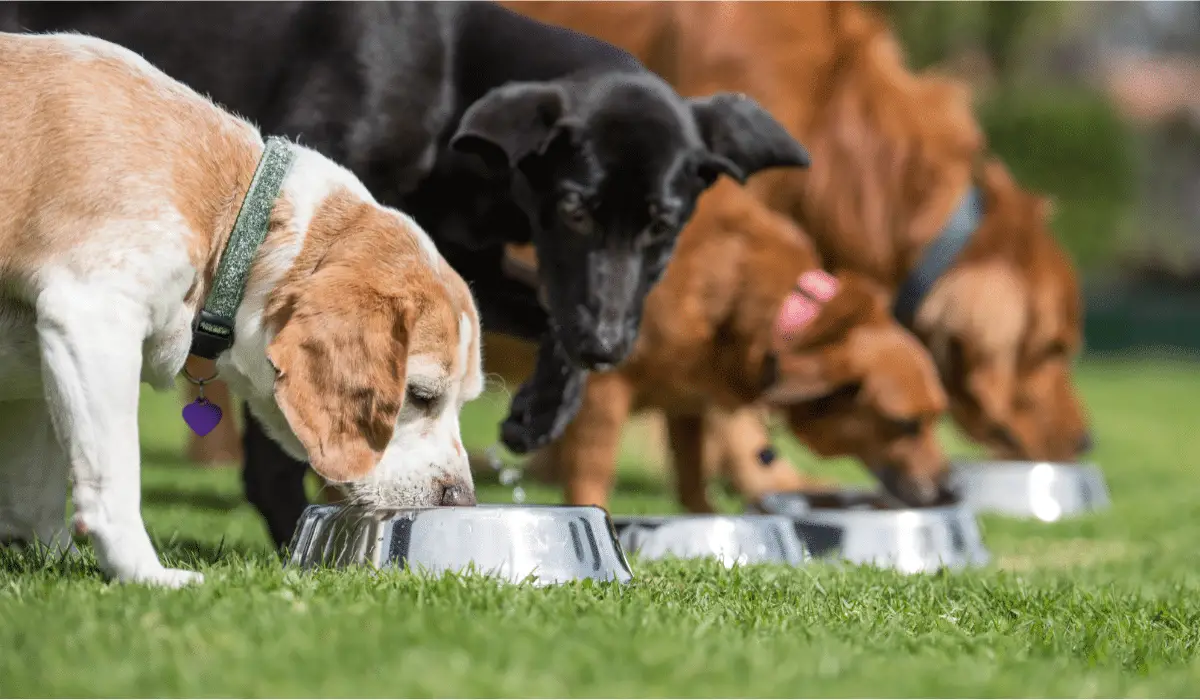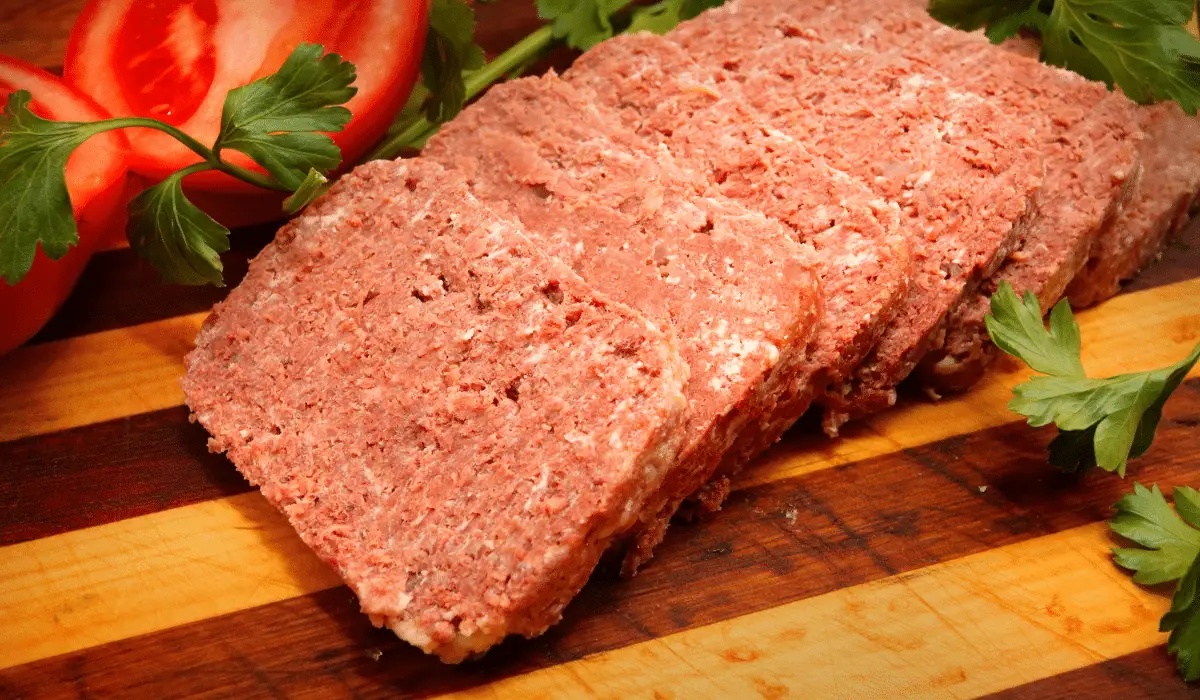Can Dogs Eat Corned Beef? An Overview
Understanding Corned Beef: Composition and Nutritional Value
Corned beef, a salt-cured brisket, has become a common query for pet owners: can dogs eat corned beef? This meat is high in protein, which can benefit dogs, but its significant sodium content raises concerns. Additionally, corned beef often contains spices and preservatives, which may not be suitable for canine consumption.
Historical and Cultural Significance of Corned Beef
Corned beef holds a prominent place in many cultures, particularly in Irish-American cuisine. Historically, it was a method of preserving meat before refrigeration. Today, it’s a celebrated dish in many households. However, its cultural significance does not necessarily translate to being a safe or healthy choice for dogs. The high sodium and potential spices in corned beef, while appealing to human taste buds, can pose health risks for dogs.
In conclusion, while dogs might find corned beef appealing, its high sodium content and potential spice mix can be harmful. It’s essential for dog owners to consider these factors before including corned beef in their pet’s diet.
Veterinary Insights on Corned Beef and Canine Health
Expert Opinions on Feeding Dogs Corned Beef
Veterinarians often caution about feeding dogs corned beef due to its high sodium content. While the protein in corned beef can be beneficial, the salt and spices often outweigh these benefits. Dr. Jane Smith, a renowned veterinary nutritionist, advises, “Corned beef should only be a rare treat for dogs. Its high sodium and fat content can lead to health issues like obesity and hypertension.” She emphasizes the importance of moderation and monitoring a dog’s reaction to this food.
Clinical Studies and Research Findings
Recent clinical studies highlight the risks associated with corned beef in a dog’s diet. Research published in the ‘Journal of Canine Nutrition’ found that prolonged consumption of high-sodium foods like corned beef can increase the risk of heart disease and kidney problems in dogs. The study advocates for a balanced diet, focusing on meats lower in sodium and free from heavy seasoning.
In conclusion, while dogs may enjoy corned beef, the consensus among veterinarians and researchers is clear: “Can dogs eat corned beef?” Yes, but only in very small, infrequent amounts. Opting for healthier, less processed meat alternatives is a safer choice for maintaining your dog’s health.
Safe Ways to Include Corned Beef in a Dog’s Diet
Preparing Corned Beef for Dogs: Do’s and Don’ts
When considering “can dogs eat corned beef,” preparation is key. Firstly, choose low-sodium corned beef to minimize health risks. Before serving, thoroughly rinse the meat to wash off extra salt. Cooking corned beef without added spices or seasonings is crucial, as some ingredients like onions and garlic are toxic to dogs.
Do’s:
- Opt for lean, low-sodium corned beef.
- Rinse the meat thoroughly.
- Cook plain, without spices or seasonings.
- Remove any excess fat.
Don’ts:
- Avoid giving raw corned beef.
- Don’t use spices or harmful ingredients.
- Never offer large or whole pieces that can cause choking.
Recommended Serving Sizes and Frequency
Portion control is essential when feeding dogs corned beef. Small dogs should only have a few small pieces, no more than a teaspoon. Larger breeds can have slightly more, but it should not exceed a tablespoon. Treat corned beef as a rare treat, not a regular part of their diet. Limit its frequency to once a week or less, and always observe your dog for any adverse reactions.
Remember, while dogs can eat corned beef in moderation, it should never replace their regular, balanced diet. Consult with a vet for personalized advice, especially for dogs with specific health conditions.
Alternatives to Corned Beef for Dogs
When considering “can dogs eat corned beef,” it’s crucial to also explore healthier alternatives. While corned beef might be a tantalizing treat, several other options offer nutritional benefits without the risks associated with high sodium and fat content.
Healthier Meat Options for Canines
- Lean Chicken: A great source of protein, lean chicken, cooked without skin and bones, provides essential amino acids without excessive fat.
- Turkey: Similar to chicken, turkey is another lean meat that’s easily digestible and low in fat, making it a safe choice for dogs.
- Beef Liver: Rich in vitamins and minerals, beef liver can be a nutritious addition to a dog’s diet when served in moderation.
- Fish: Fatty fish like salmon are excellent for dogs, offering omega-3 fatty acids which promote healthy skin and coat. (Find out more about feeding fish to your dog at PetMD).
By choosing these meats, dog owners can provide their pets with high-quality protein sources that are both safe and beneficial.
Plant-Based Alternatives and Their Benefits
- Carrots: Crunchy and nutritious, carrots are a fantastic source of fiber and vitamins, making them a healthy snack for dogs. (Explore the benefits of feeding carrots to your dog in this article from the American Kennel Club).
- Green Beans: Low in calories and high in fiber, green beans can be a perfect treat for dogs, especially those needing weight management.
- Pumpkin: Rich in fiber and beta-carotene, pumpkin aids in digestive health and is an excellent addition to a dog’s diet.
- Sweet Potatoes: Packed with vitamin A and fiber, sweet potatoes are a delicious and nutritious treat for dogs. (Learn more about the benefits of sweet potatoes for dogs at PetMD).
These plant-based options not only add variety to a dog’s diet but also come with significant health benefits, providing essential nutrients while maintaining overall well-being. By considering these alternatives, owners can ensure their dogs enjoy a balanced and healthy diet.
Dog Owners’ Experiences with Corned Beef
Real-Life Stories and Testimonials
Many dog owners often ask, “Can dogs eat corned beef?” Through shared experiences, it’s clear that while some dogs may enjoy corned beef without immediate issues, others may face health complications. For instance, a Labrador owner recounted how her dog experienced digestive upset after eating a small amount of corned beef, pointing to its high sodium content and rich spices as possible culprits. Another owner of a Beagle shared a different story; her dog seemed to enjoy corned beef treats occasionally without any noticeable health issues.
Lessons Learned and Best Practices
These real-life accounts underline a crucial lesson: moderation and caution are key. Dog owners have learned that if they choose to feed their dogs corned beef, it should be in small, infrequent amounts. Removing excess salt and avoiding any seasoned or spiced varieties is also a best practice. Consulting with a veterinarian before introducing any new food item, like corned beef, into a dog’s diet is highly recommended. This ensures that the dietary change aligns with the specific health needs and conditions of the dog.
In summary, while some dogs may tolerate corned beef, it’s not an ideal food choice due to its high sodium and potential spice content. Dog owners who have fed their pets corned beef emphasize the importance of moderation, careful preparation, and veterinary guidance.
Homemade Dog-Friendly Corned Beef Recipe
This recipe is tailored for dog owners who want to safely include corned beef in their pet’s diet. It’s a simple, low-sodium version that avoids harmful ingredients for dogs.
Ingredients:
- 1 pound lean beef brisket
- 4 cups water
- 1 teaspoon apple cider vinegar
- 1 bay leaf (optional)
- 1 carrot, chopped
- 1 small sweet potato, chopped
Instructions:
- Prepare the Beef: Trim any excess fat from the beef brisket. Fat content should be kept to a minimum as high-fat foods are not suitable for dogs.
- Boil the Beef: In a large pot, combine the beef with water and apple cider vinegar. The vinegar helps tenderize the meat without the need for salt.
- Add Vegetables: Add the chopped carrot and sweet potato to the pot. These vegetables provide fiber and essential nutrients.
- Include a Bay Leaf (Optional): If you choose to use a bay leaf, add it to the pot. It can add flavor without harming your dog. Remember to remove it before serving.
- Cook the Meat: Bring the pot to a boil, then reduce the heat to a simmer. Cover and cook for about 2-3 hours or until the beef is tender.
- Cool and Serve: Once the beef is cooked, remove it from the pot and let it cool. Remove the bay leaf if used. Cut the beef into small, bite-sized pieces appropriate for your dog’s size.
- Store Appropriately: Store the corned beef in the refrigerator for up to three days, or freeze it in portion-sized packets.
Note: Always consult with your vet before introducing new foods into your dog’s diet, especially if your dog has specific health issues or dietary needs. This recipe is meant to be a treat, not a meal replacement, and should be given in moderation.
Store-Bought Corned Beef: What to Look For
Identifying High-Quality Products
When considering whether dogs can eat corned beef, especially the store-bought variety, it’s essential to identify high-quality products. Look for corned beef with minimal additives and preservatives. The best options often have a short ingredient list, primarily featuring beef and water. Opt for low-sodium varieties to reduce health risks associated with high salt intake in dogs. Additionally, natural or organic labels can be a good indicator of quality, as they suggest fewer chemicals and artificial ingredients.
Labels and Ingredients to Avoid
It’s crucial to know which labels and ingredients to avoid when buying corned beef for dogs. Stay clear of products with high sodium content, as excessive salt is harmful to dogs. Avoid corned beef that contains garlic or onion powder, as these are toxic to dogs. Also, steer clear of products with added sugars, nitrates, and nitrites, which offer no nutritional benefits and can be detrimental to canine health.
In summary, while dogs can eat corned beef, choosing the right product is key. Go for low-sodium, additive-free options to ensure it’s a safe, occasional treat for your furry friend.
FAQ Section: Can Dogs Eat Corned Beef
Addressing Common Questions and Concerns
Q: Is corned beef safe for dogs to eat?
A: Yes, dogs can eat corned beef, but only in small amounts and occasionally. Due to its high sodium content and potential spices, it’s not ideal for regular feeding.
Q: Can corned beef cause health issues in dogs?
A: Yes. High sodium in corned beef can lead to dehydration and sodium ion poisoning in dogs. It’s important to serve it sparingly and watch for any unusual symptoms in your pet.
Q: How often can I give my dog corned beef?
A: Treat corned beef as a rare delicacy. Feeding it once a month or less is a safe approach, especially if it’s low in sodium and free from harmful spices.
Q: Are there any parts of corned beef I should avoid giving to my dog?
A: Avoid fatty parts and any corned beef cooked with onions, garlic, or harmful seasonings. These can be toxic to dogs.
Expert Answers and Advice
Q: What are the best ways to prepare corned beef for dogs?
A: Rinse the corned beef to reduce sodium and cook it plainly without any added spices or seasonings. Serving it in small, bite-sized pieces is also safer.
Q: Can puppies eat corned beef?
A: Puppies have more sensitive digestive systems, so it’s better to avoid giving them corned beef. Stick to a puppy-formulated diet for their growth and health.
Q: What should I do if my dog reacts badly to corned beef?
A: If your dog shows signs of distress, such as vomiting, diarrhea, or excessive thirst after eating corned beef, contact your veterinarian immediately. It’s crucial to monitor their reaction to new foods.

